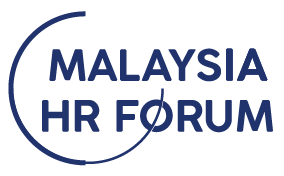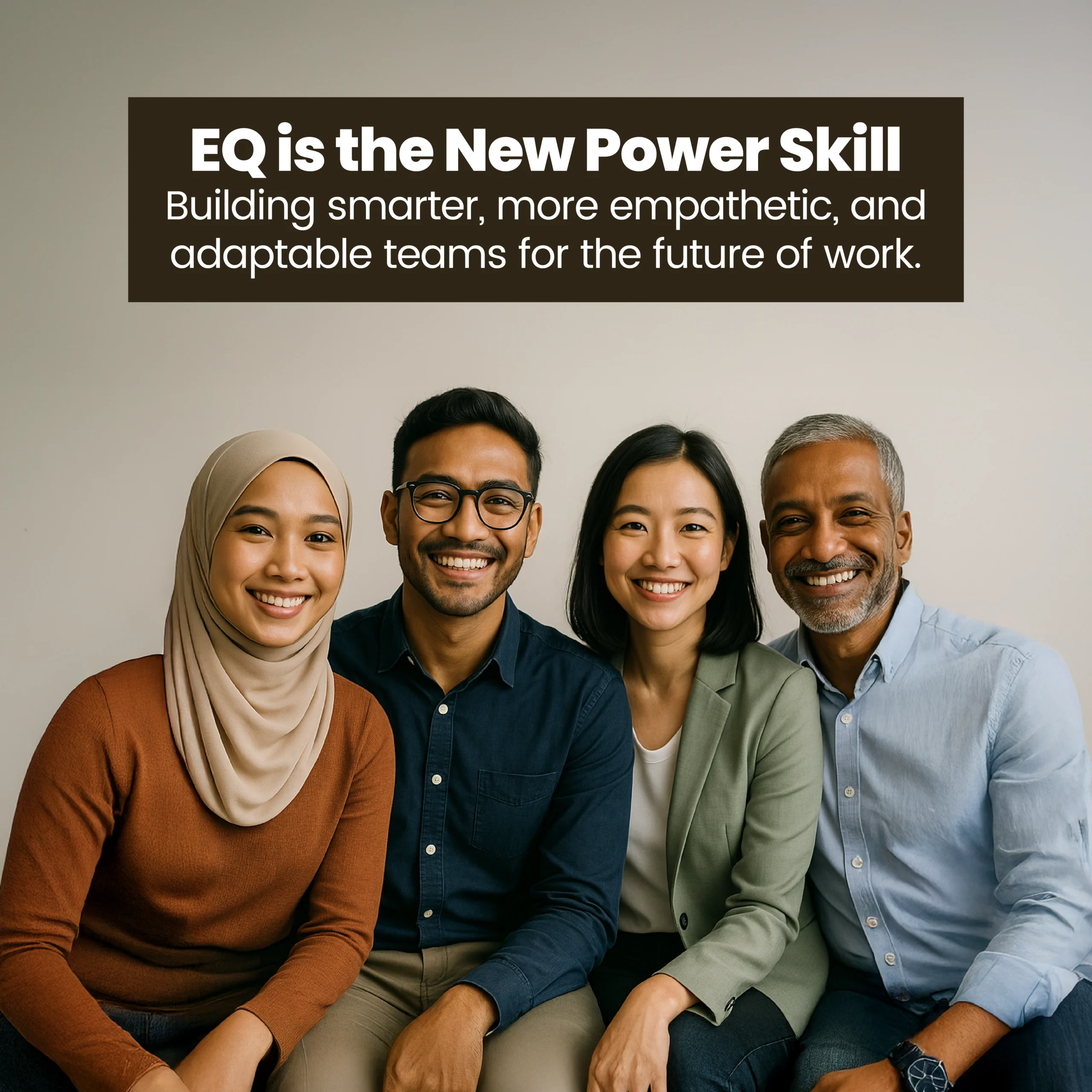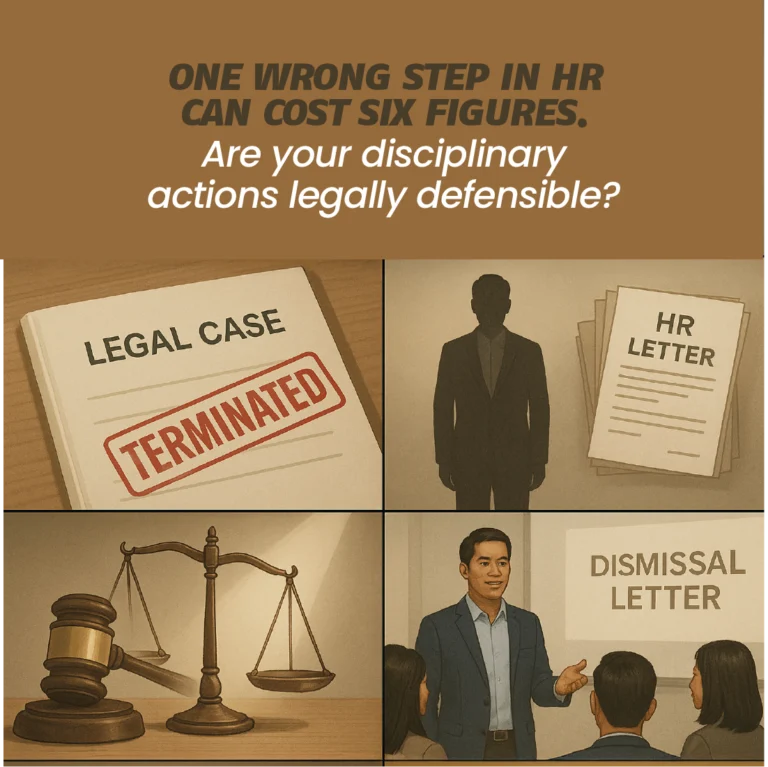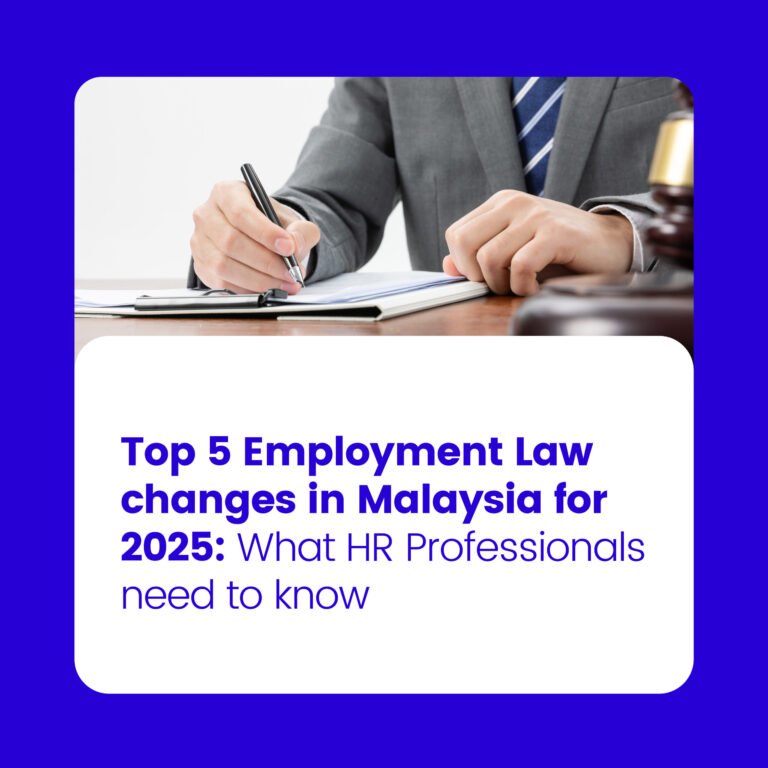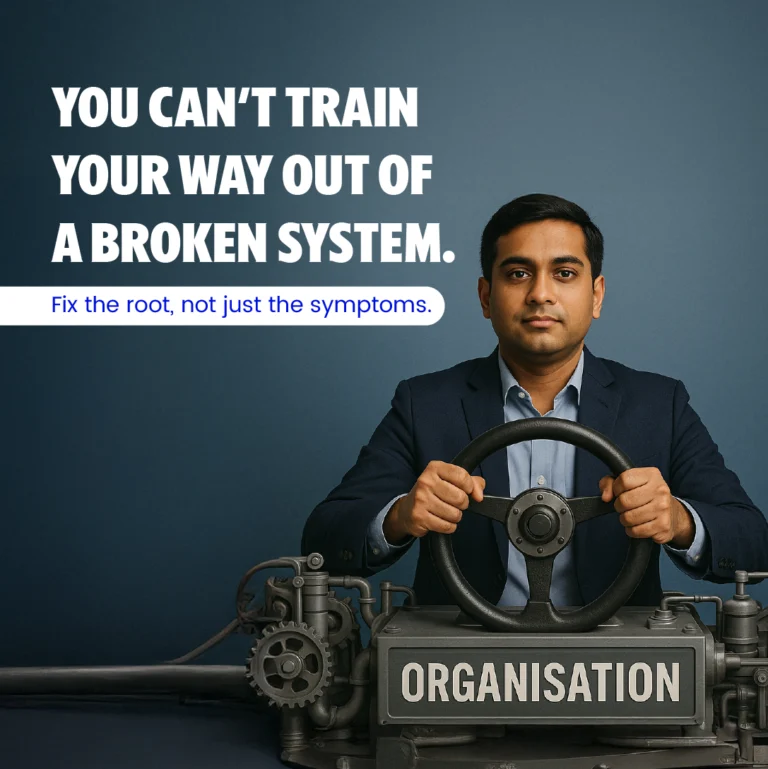The Changing Landscape of Work
Technology, globalization, hybrid work, and multigenerational teams are redefining what it takes to succeed in the workplace. Traditional focus areas such as technical skills and domain knowledge remain important, but organisations are recognising that these alone no longer guarantee success. Emotional intelligence, which includes skills such as self-awareness, empathy, social awareness, and emotional regulation, is now emerging as a core competency for both leaders and the broader workforce.
Studies in Malaysia highlight this shift. One research project found that emotional intelligence subscales, except the “use of emotions” dimension, had a significant positive relationship with job performance among Malaysian employees through psychological capital. Another study reported that emotional intelligence positively influenced organisational performance in the Malaysian public sector.
These findings carry a clear message for HR professionals: preparing the future workforce must include EQ development alongside technical training.
Why EQ Matters for Leaders and the Workforce of Tomorrow
Leaders with high emotional intelligence are better able to understand emotional dynamics within teams, sustain engagement, manage conflict, foster innovation, and build resilience. For the workforce as a whole, strong EQ helps individuals navigate change, collaborate across differences, respond to disruption, and maintain performance under pressure.
For example, a study of Malaysian service-sector employees found that emotional intelligence moderated the relationship between work-family conflict and work engagement. This means individuals with higher EQ were less affected by conflict and maintained engagement. In a future where hybrid work, blurred boundaries, and rapid role transitions are common, this capability is vital.
Furthermore, research on Malaysian managers identified empathy, emotional resilience, self-awareness, adaptability, and continuous learning as top-ranked factors influencing emotional intelligence ability. Preparing the future workforce means embedding these attributes now.
The Gap: What Many Workforces Miss
Despite the evidence, many organisations still treat EQ as an optional or “soft” topic. Training programmes often focus heavily on technical skills, compliance, or digital literacy, while emotional and relational competencies are treated as add-ons or afterthoughts.
In Malaysia, a study on graduate readiness found that emotional intelligence and psychological capital were key to work readiness yet remain underdeveloped among new entrants to the workforce. This gap is risky: a workforce may have certificates and technical knowledge, but without EQ, they struggle to collaborate, adapt, lead, or sustain performance.
If the future workforce lacks emotional intelligence, organisations face higher conflict, lower psychological safety, slower innovation, and weaker performance outcomes.
A Strategic Framework for HR: Building EQ for the Future Workforce
Here is how HR can lead a strategic initiative to develop emotional intelligence as a core capability in the future workforce.
- Define EQ Competencies for All Levels
Create a competency framework that outlines EQ behaviours expected at individual, team leader, and executive levels. For instance, self-awareness and self-management for individual contributors, empathy and influencing skills for team leads, and conflict facilitation and emotional culture shaping for senior leaders. - Embed EQ in Talent Processes
Integrate emotional intelligence into recruitment, onboarding programmes, and leadership pipelines. Behavioural interview questions and situational judgement tests can assess EQ readiness. Selecting and promoting for EQ ensures the workforce evolves with this capability built in. - Design Applied Learning Journeys
Instead of one-off workshops, implement modular learning paths with practice labs, peer coaching, reflection, and real-world application. For example, modules might include role plays on relational conflict, peer feedback sessions, emotional regulation practices, and cross-department collaboration projects. - Build Psychological Safety and Conflict-Resilient Culture
Leaders must model emotional intelligence by inviting feedback, acknowledging mistakes, and facilitating open dialogue. Psychological safety allows teams to raise disagreements early, resolve conflict constructively, and innovate. Without psychological safety, conflicts escalate into disengagement. - Measure and Link to Business Outcomes
Use data to demonstrate impact. Survey EQ maturity, measure team climate, track conflict resolution rates, employee engagement, turnover, and project success. Studies in Malaysia linking EQ to organisational performance provide a strong foundation to argue business relevance. - Reinforce Through Systems and Leadership
Embed EQ expectations in performance management, development plans, and leadership reviews. Coaching leaders in emotional regulation, conflict dialogue, and relational transparency helps ensure EQ becomes part of everyday work practice.
Here are micro-skills of EQ that are especially valuable for the future workforce:
- Recognising and naming one’s own emotional state in the moment
- Pausing before responding when triggered and choosing intentional responses
- Listening not just to content but to emotion beneath the message
- Giving feedback that focuses on behaviour and impact rather than only tasks
- Navigating disagreement by asking open questions and seeking mutual understanding
- Asking for and giving help when needed, modelling vulnerability
- Reflecting on collaboration experiences and using lessons to improve relationships
Training programmes should include these skills, and HR should support ongoing practice through peer groups, reflection logs, and manager check-ins.
The ROI of EQ: Why Leadership Must Care
Emotional intelligence delivers measurable business outcomes. In Malaysia, a study of public sector administrators found that higher emotional intelligence predicted better organisational performance. Globally, higher EQ has been linked to better leadership effectiveness, higher employee engagement, lower turnover, and increased innovation.
For the future workforce, this means equipping people not only to complete tasks effectively but also to work well with others, adapt to change, manage emotions under uncertainty, and lead through complexity. This kind of capability becomes a strategic differentiator.
The future of work is as much emotional as it is digital and technical. A workforce with high emotional intelligence processes change faster, handles conflict constructively, collaborates across boundaries, and sustains performance under pressure.
For HR professionals in Malaysia, the question is not whether to invest in EQ training but how to design it so that it becomes embedded, measurable, and linked to business outcomes. When the future workforce enters the room, success will not only depend on what they know but also on how they feel, how they engage, and how they lead.
In short, beyond IQ, EQ is the new core competency, and the time to act is now.
